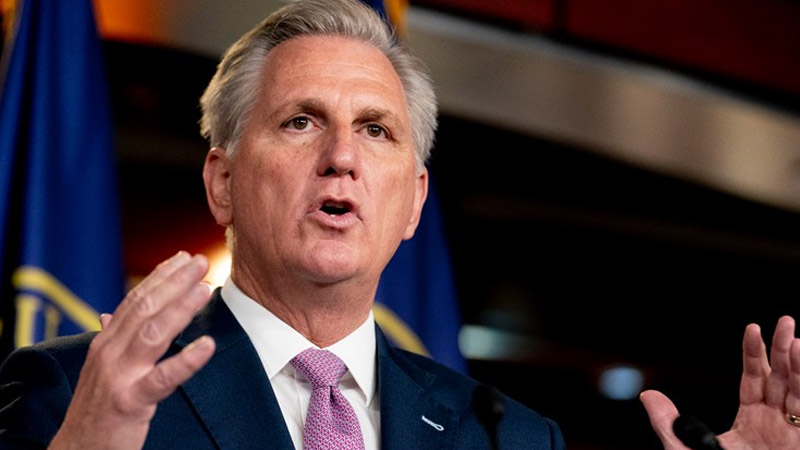According to a report by HuffPost on Monday, December 11, 2023, on “CBS Sunday Morning,” retiring Rep. Kevin McCarthy (R-Calif.) made bold predictions and endorsements regarding Donald Trump’s political future, leaving CBS correspondent Robert Costa astounded and viewers questioning the direction of the Republican party.
McCarthy’s assertions provide a glimpse into the evolving landscape of GOP politics as the specter of the 2024 presidential race looms.
During the interview, McCarthy confidently declared that Trump would be the Republican nominee for the 2024 election, a statement that reverberated across political circles.
He went further, envisioning Trump triumphing over President Joe Biden in a hypothetical rematch.
In a recent article by CBS News, Such proclamations highlight McCarthy’s unwavering support for the former president, setting the stage for what could be a contentious and closely watched campaign season.
Perhaps the most striking aspect of McCarthy’s interview was his endorsement of Trump, who is no stranger to legal controversies, having faced four indictments.
McCarthy’s public backing of the GOP front-runner, despite legal challenges, underscores the divisive nature of Trump’s influence within the Republican party.
It signals a willingness among some party members to overlook legal concerns in favor of aligning with Trump’s political agenda.
However, it was McCarthy’s response to Robert Costa’s probing question that truly captured attention.
When pressed about concerns regarding Trump’s language and the perception of authoritarianism or fascism by some Americans, McCarthy appeared unfazed.
Costa pointedly asked about the disconnect between praising Trump’s policies and acknowledging the reservations held by a portion of the population.
McCarthy’s reply was succinct but left lingering questions.
“I don’t see that,” he asserted, downplaying concerns about authoritarian tendencies.
He insisted that Trump’s focus in the 2024 campaign should be on “rebuilding, restoring, renewing America” rather than seeking revenge.
This response shed light on the delicate balance within the Republican party, torn between allegiance to Trump’s policies and the need to address broader public concerns about his leadership style.
Costa, however, continued to press McCarthy on Trump’s rhetoric, emphasizing the consistent theme of retribution in the former president’s speeches.
McCarthy acknowledged the issue, stating, “He needs to stop that.”
This admission exposes a potential rift within the GOP, with some members recognizing the need for a more measured and conciliatory tone while others rally behind Trump’s confrontational approach.
The interview raises critical questions about the future trajectory of the Republican party and its alignment with Trump’s brand of politics.
McCarthy’s endorsement and his attempt to navigate the delicate balance between supporting Trump and addressing public concerns underscore the complexities facing GOP leaders as they navigate the upcoming election cycle.


